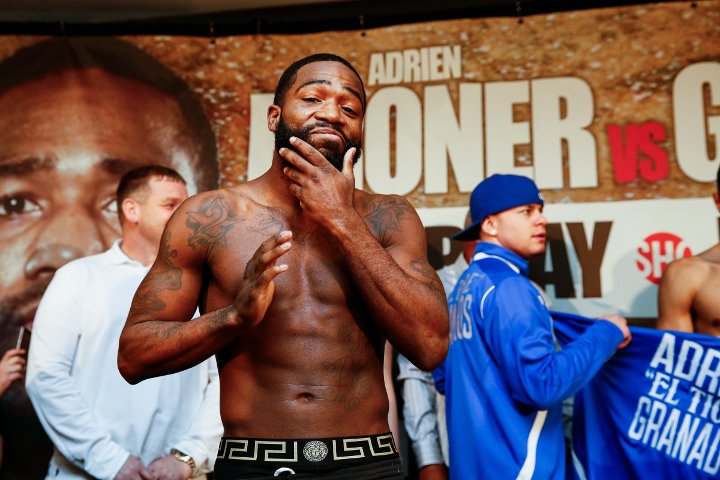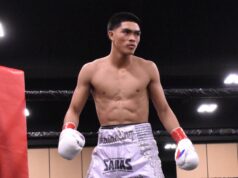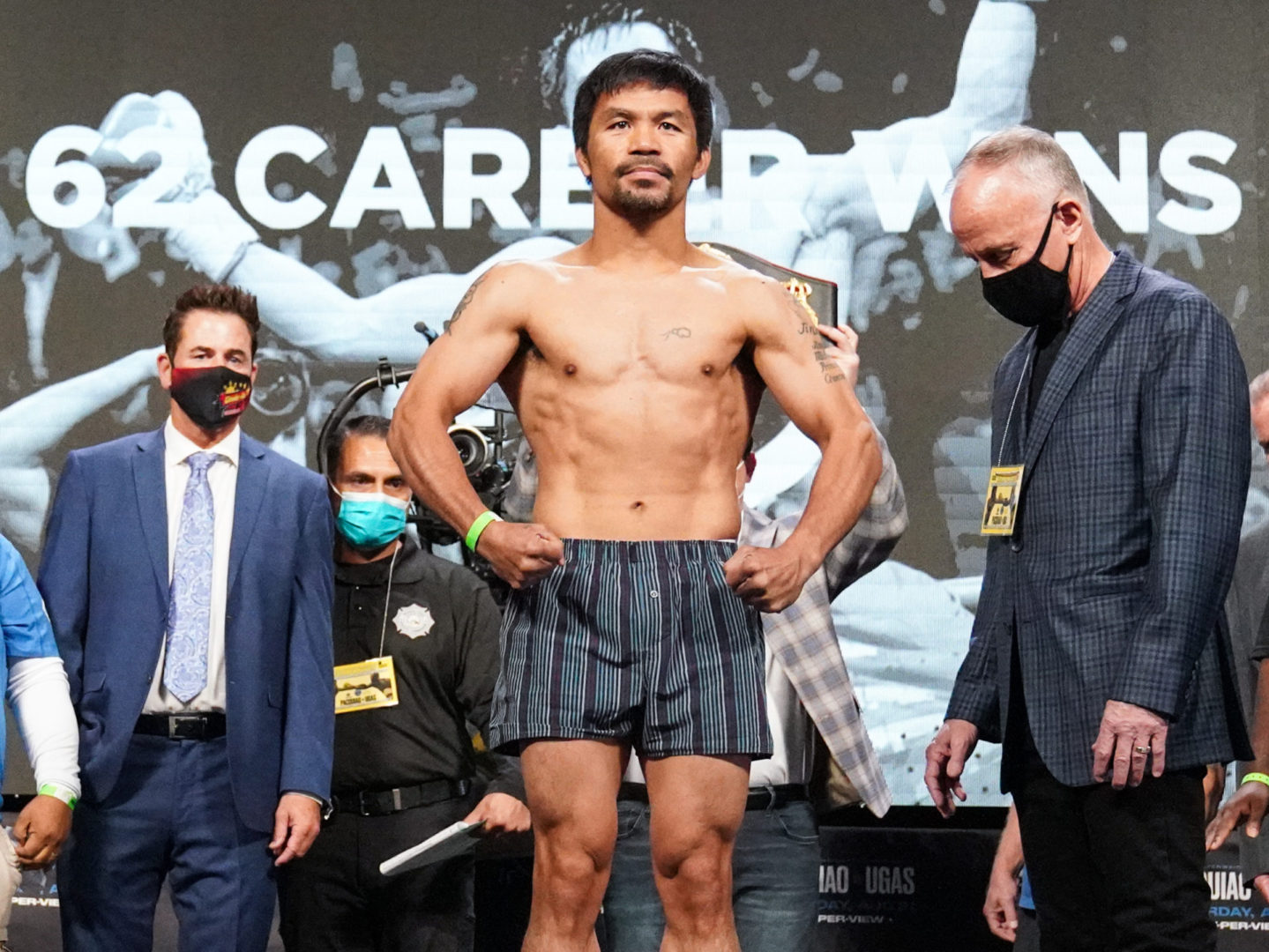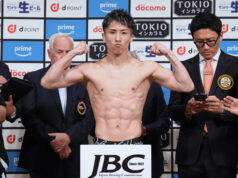By Jimmy Tobin-

Saturday night, at the Cintas Center in Cincinnati Ohio, Adrien “The Problem” Broner won a split decision over Adrian “El Tigre” Granados, in a fight whose outcome reflected what talent, yes, but also what geography and promotional favor were at play. If you were looking for something approximating a level playing field, Broner-Granados, like many a main event, left you wanting. What you got instead was a ten-round match at the welterweight limit because Broner was unable to make the contracted weight of 142 pounds and because Granados, understanding his role in the proceedings, dare not protest. The fight was, however, live streamed on Twitter, thereby sparing many an aficionado of having to beat back a swarm of pop ups to see the action.
Whatever the merits of Saturday night’s main event, it has been three years since Broner gave a memorable performance. That night, Broner danced into the ring in the Alamodome in San Antonio, Texas, got humiliated by Marcos Maidana, then hurried woozily out of the spotlight. For many, Broner’s appeal to that point lay primarily in seeing him humbled, that it came at the hands of an affable killer like Maidana only made it sweeter. Having scared Broner out of the welterweight division, Maidana parlayed his victory into a fight with Floyd Mayweather, that fight into a rematch, and ultimately, an early retirement. He gave Mayweather hell in their first fight, yet it was his solving of “The Problem” that Maidana will be remembered best for. And that speaks to the kind of presence Broner has.
That presence is a little difficult to explain. At lightweight, Broner treated his invariably overmatched opposition as a professional should: walking them down and whacking them away with left hooks and a particularly evil rear uppercut. For a time, there was something compelling about seeing him terrorize opponents if only because, his clownish behaviour aside, Broner was merciless when the bell rang. There was something endearing about his ambition too—however much it smacked also of poor discipline—when he moved directly to welterweight in pursuing his ten-digit dreams. Broner commanded attention then, with thousands of words being devoted to him, his future, his similarities to his sometime-friend and mentor.
But all that attention seems foolish now because really, there is nothing remarkable about Broner. Still glacial in his transitions between offense and defense, Broner now resorts to little more than holding and pot shotting, and however much the commentary team may have lauded him for landing the harder punches (whatever that means) Broner hurt Granados no more than Granados hurt him. Gone too, like the opponents he could bully, is his penchant for bullying, the redeeming element in Broner’s earlier violence.
He was done no favors Saturday, having to follow Lamont Peterson, who whittled his way to a victory over David Avanesyan on the undercard. At welterweight Peterson is even less a puncher than Broner, but he compensates for that middling firepower with volume proportional to proximity. Peterson demands you fight; there is real craft in his angles, his head movement, and in the combinations he pistons home. There is too, in Peterson’s dogged efforts to hammer out his fortune three minutes at a time, a reason to watch.
Except people do not turn in to see Peterson like they do Broner, a fact that must baffle and frustrate the latter’s remaining detractors. And such detractors remain, though they number far less than they did before Broner was thrashed against the ceiling of his potential by the beloved “Chino.” How to explain a fighter who so many found repellant becoming endearing? How does a fighter whose greatest appeal once lay in his eventual comeuppance enjoy a greater popularity since that supposedly ruinous defeat?
Perhaps it is because this version of Broner often makes better fights than he is credited with. No, he is not facing the more celebrated names in Haymon’s stable, but his efforts against Maidana and Shawn Porter are a glimpse into why. Broner’s name may have some star quality to it, but the fighter that owns it is hardly stellar. He is, however, especially considering his standing within Haymon’s universe, relatively well-matched, and in those matches, he comports himself respectably.
When he was turning the lights out on sympathetic characters like Antonio DeMarco or failing to make weight against Vicente Escobedo, forcing the already dwarfed fighter to either accept being further disadvantaged or walk away from a payday, Broner’s antics were more likely to offend. Now, however, with a pair of telling losses and some less than glossy wins on his ledger, with all that made him exceptional forfeited to the scale, and with him fixed at least a tier below the fighters he was supposed to separate himself from, Broner is too mediocre to be upsetting. The fighter who for years appeared to take neither himself nor his profession particularly seriously is undeserving of even the most complimentary enmity. When ya boy AB is just doing AB people are chuckling or yawning, not screwing up their faces.
His recent about-face is not the product of some awakened duty to be a role model or any other more noble rationale: it is born of Broner’s recognition that he cannot reconcile his words and deeds. A high profile win or two would surely see a return of “The Problem.”
So, gone forever, then?











